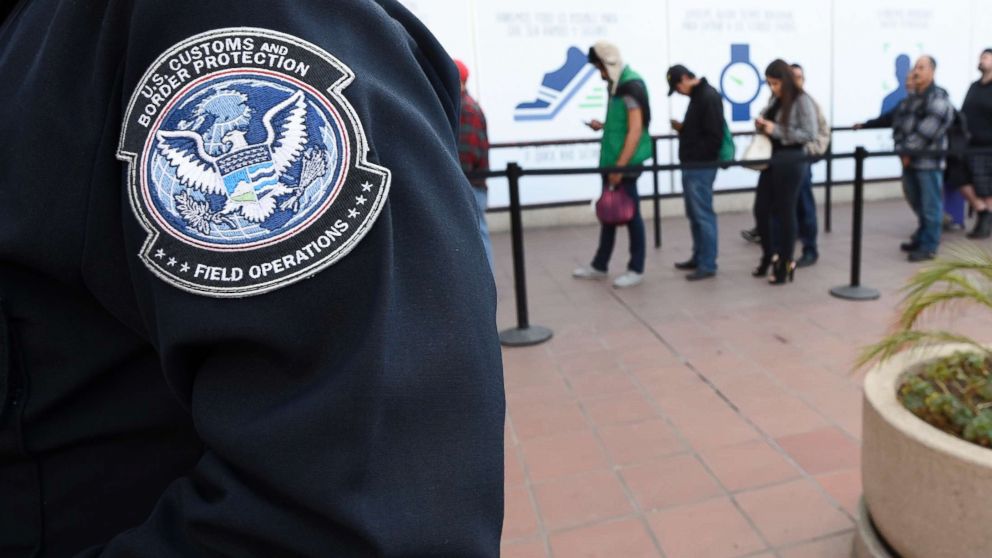U.S. Customs And Border Protection Is Leveraging Blockchain To Defend American Businesses
U.S. Customs and Border Protection is trialing innovative blockchain solutions and specifications to improve the agency’s capability to protect American businesses from IPR (Intellectual Property Rights) theft.
A currently concluded proof of concept reveals how blockchain technology can defend IPR on American imports as well as sensitive data transmitted between multiple parties utilizing a single, streamlined platform.
“Supporting American innovation and ingenuity by upholding intellectual property rights has always been a critical part of the CBP mission,” stated Brenda Smith, Executive Assistant Commissioner of CBP’s Office of Trade.
“This pilot represents great potential for marrying new technology with our traditional trade mission; to protect the U.S. economy.”
Blockchain is a digital ledger that offers a tamperproof, secure, and permanent record of transactions. Sensitive data, like personally identifiable data and trade secrets, are kept safe through the application of encrypted keys.
The technology is crucial to battling IPR violations by enabling CBP to transfer data securely and efficiently with rights holders, manufacturers, retailers, and importers.
Utilizing a single access point in blockchain, the proof of concept provided the agency to leverage technology to combine the data accurately to the product and the license, occurring in fewer physical examinations.
This was accomplished through blockchain interoperability, which suggests that each organization engaging in a transaction can interact with others utilizing their unique blockchain, notwithstanding different software used by each party, providing companies the flexibility to select and customize technology that satisfies their individual needs.
Companies engaging in this interoperable system experience cost savings as the platform excludes the requirement to rebuild a blockchain every time a new entity with various software participates.
This proof of concept is the first of its kind test of standards and specifications to promote blockchain interoperability utilizing open, standardized approaches. This will assist in creating a framework for accelerated adoption and cost minimization. These specifications were financed by the DHS Science & Technology Directorate and tested by CBP’s Office of Trade and contributed to the global standardization process at the World Wide Web Consortium.
The tests drew broad participation from the trade community who describe the technical feasibility and business value of blockchain technology for trade facilitation.
“We are excited to be applying these innovative solutions to the protection of intellectual property rights. By leveraging state-of-the-art technologies, we continue to enhance CBP’s business intelligence capabilities for advancing trade facilitation, security, and enforcement objectives,” said James Byram, Executive Director of CBP’s Office of Trade, Trade Transformation Office.
Stay informed with daily updates from Blockchain Magazine on Google News. Click here to follow us and mark as favorite: [Blockchain Magazine on Google News].
Get Blockchain Insights In Inbox
Stay ahead of the curve with expert analysis and market updates.
latest from tech
Disclaimer: Any post shared by a third-party agency are sponsored and Blockchain Magazine has no views on any such posts. The views and opinions expressed in this post are those of the clients and do not necessarily reflect the official policy or position of Blockchain Magazine. The information provided in this post is for informational purposes only and should not be considered as financial, investment, or professional advice. Blockchain Magazine does not endorse or promote any specific products, services, or companies mentioned in this posts. Readers are encouraged to conduct their own research and consult with a qualified professional before making any financial decisions.

 Bitcoin
Bitcoin  Ethereum
Ethereum  XRP
XRP  Tether
Tether  Solana
Solana  Dogecoin
Dogecoin  USDC
USDC  Cardano
Cardano  Lido Staked Ether
Lido Staked Ether  TRON
TRON  Avalanche
Avalanche  Chainlink
Chainlink  Sui
Sui  Stellar
Stellar  Wrapped Bitcoin
Wrapped Bitcoin  Wrapped stETH
Wrapped stETH  Hedera
Hedera  Shiba Inu
Shiba Inu  Toncoin
Toncoin  Polkadot
Polkadot  WETH
WETH  Litecoin
Litecoin  Bitcoin Cash
Bitcoin Cash  LEO Token
LEO Token  Uniswap
Uniswap  Bitget Token
Bitget Token  Pepe
Pepe  Official Trump
Official Trump  Hyperliquid
Hyperliquid  Wrapped eETH
Wrapped eETH  NEAR Protocol
NEAR Protocol  USDS
USDS  Ethena USDe
Ethena USDe  Aptos
Aptos  Internet Computer
Internet Computer  Aave
Aave  Ondo
Ondo  POL (ex-MATIC)
POL (ex-MATIC)  Monero
Monero  Ethereum Classic
Ethereum Classic  Render
Render  Bittensor
Bittensor  MANTRA
MANTRA  Cronos
Cronos  Algorand
Algorand  Mantle
Mantle  Dai
Dai 




